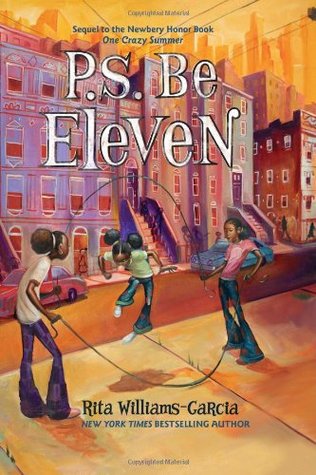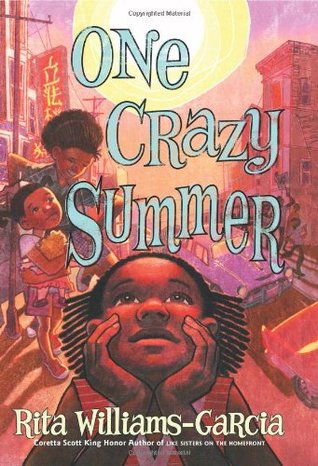★★★★½

This book uses the format in which each chapter is told from a particular character's first-person perspective. The chapters alternate between Ravi and Joe. Ravi is - in his words - "fresh off the boat" from India. Joe is one of Ravi's white American classmates. This book spans just one week, the first week of 5th grade.
I loved so many things about this book. I'll just try to lay them out.
I love that we hear the internal voice of a child immigrant. Off the top of my head, I can't think of any other children's book that I've read that includes such a character - and I find that shocking. Why aren't there more children's books like this?! I'm going to try to seek out some more... Anyway, I love that the reader is put into a position of better understanding how big the divide is between an immigrant's home country and America. American children - like Joe - are sure to look upon new immigrant classmates like Ravi as odd and different. But Ravi's narration lets us know that Ravi is not only a typical kid in India, but the very things that make him a target for ridicule in America are what helped make him popular and successful in India!
Meanwhile, I love that Joe isn't just a "regular" kid in America - he's a good kid, but he feels different, too, because he has Auditory Processing Disorder (APD). He's thoughtful, but frequently misjudged. In this way, I love that this book includes a positive representation not only of cultural diversity, but also of special education diversity.
On the one hand, I love that this book takes place in just one week. The kids are not bottling up their feelings for weeks and weeks, hiding them from their parents, letting things get worse. Though there is some hesitancy, both kids eventually open up to their parents, and things get resolved. I love that. These kids have parents and grandparents who care about them, and they really can help.
On the other hand, I was somewhat disappointed that the book only spans one week, because at the end, I wasn't ready to leave Ravi and Joe. I wanted to read more, and see how their friendship developed!
I love that this book had the ethnic-food-for-lunch quandary that is like a rite of passage for all immigrant children. I also love that the author gave it a bit of a different spin - Ravi did not have to feel ashamed of his lunch to realize that his lunch made him different. He recognized the difference, but was also proud and happy to eat the Indian food in his Indian-style lunch box.
When I got to the end, I loved that this book has two glossaries - one for Indian words, and one for American words! It really helps to drive home the point that different cultures are tied to the language they use to describe every-day things. Just as an American reader would need a little context to understand words like kho kho (an Indian children's game), Shakti Kapoor (a Bollywood actor), and uppuma (an Indian food), a non-American reader would need a little context to understand words like Hacky Sack, Kohl's, and salsa! Not to mention American slang like "puke" and "crud".
Finally, I loved realizing that the Ravi and Joe portions were written by different authors; presumably the Indian author wrote the Ravi chapters, and the non-Indian author wrote the Joe chapters. Their voices are distinct, you can hear their characters' personalities through their narration, and it may or may not have been relevant, but I just like the idea that both authors had two boys of their own, from whom maybe they drew some inspiration.
So with all that being said, I gave this book just shy of 5 stars because of something that seems to bother me in a lot of children's books - the bully. I don't know why, but when it comes to realistic children's fiction, I always sympathize with the child bully just a little bit - I want the bully to be fleshed out enough so that we all realize that bullies aren't just evil, mean-spirited people, especially when they're kids. Usually, they have some issues they need to work out themselves, probably involving their home life, or how they're treated by their parents. In this case, the bully is a rich, probably spoiled Indian-American boy. He gets his comeuppance, but does he learn anything? Also, I wonder if Indian-American readers might resent how poorly American-born Indians are portrayed in this book, especially in the way they are depicted as being wholly different in every way from immigrant Indians. I would have liked to have seen some kind of resolution that might have brought Ravi and Dillon together in some way, even if only briefly.






